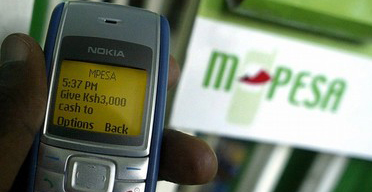NAIROBI, November 25 – The recent controversy between the Central Bank of Kenya (CBK) and the Communication Commission of Kenya (CCK) has underscored the importance of emerging technology as the new sources of revenue.
Last month, it was revealed that the Central Bank was ready to publish a Bill to regulate the mobile money market. Bitange Ndemo, Permanent Secretary in the Ministry of Information and Communication confirmed that the CBK was ready to regulate the industry.
But why was CBK so quick in assuming responsibility of publishing the Bill while the ICT Bill, which includes new regulations on e-commerce is yet to be finalised? Does M-pesa fit within the ICT Bill or a separate Bill?
Of course, the Sh36 billion M-pesa product from mobile company Safaricom has handed is an impetus for any government agency willing to introduce new taxation regimes. The banks have made their case known that the mobile money market has taken a majority of their clientele.
The ICT Bill is in the pipeline and is expected to regulate the way business is conducted over the internet or any other technology related transactions. It will allow Kenyan online transactions to be more recognised abroad, by sites like PayPal that do not open online accounts for Kenyans because of legal issues.
There is no doubt that with the entry of Zap by Zain, Orange and the new kid on the block, Yu’s mobile money transfer, the landscape will change and present a new form of legal challenges. Zap claims the money transfer will be across Africa and the Middle East.
As the operators grow, the daily limit will increase from the current Sh50,000 and the operating margins will become even higher. There will be specific issues of money laundering and unmonitored transfers. The currency exchange will also be a challenge; what rate will apply, will it be determined arbitrarily by the agents or will the CBK license new form of bureaus to change the money, especially with cross region transfers?
These are questions that need to be asked and answered as the potential of mobile money transfer moves from Kenya to the region. What are the opportunities and the corresponding potential?
M-pesa has opened new business frontiers. From the remote villages to the up-market residences served by the internet, Kenyans have found innovative ways to send money via the mobile.
For example, at Ituru trading center in Thika district, Mama Wanja smiles as she looks at her phone, she has just received money via M-pesa from one of the villager’s daughters.
As the local shop owner with significant stock, Mama Wanja allows villagers to get goods on credit on the promise that the money will be transferred to her account. She is also the sole M-pesa agent in the locality and when people go to collect their money, she deducts the debt without much hassle.
"This technology has greatly helped the community," she says. "I do not have to run after them to pay debts, when the money is sent by the relatives, I just deduct my debt and give them the balance, which improves the confidence."
In Nairobi, David Kariithi has a more complicated way of using M-pesa; he operates Hewapesa a website that allows Kenyans in the Diaspora to send money to their relatives using their credit cards.
Hewapesa has partnered with a US company and opened a PayPal account, making it easier for users to transfer money using M-pesa, said Kariithi, who is a founder and Technical Director of Hewapesa.
"The process is pretty fast and simple; a user has to create an account, deposit money into it, specify the recipient’s details and the amount to be sent and the money is sent upon verification," said Kariithi.
Hewapesa has also partnered with a local M-pesa agent, and the money can be withdrawn from any agent.
"M-pesa has given me new business ideas," said Mama Wanja. "I want to open a shop in the neighbouring location to cut the distance that my customers travel to withdraw money."
If the new business idea is implemented, Mama Wanja will employ one person, while Kariithi has already employed three people.
The innovation cuts across the ages and the technology gap but for the innovation to blossom, the laws must foster it and not stifle it.
The intention of the CBK will be known better when the Bill is published and scrutinised by industry players.



































